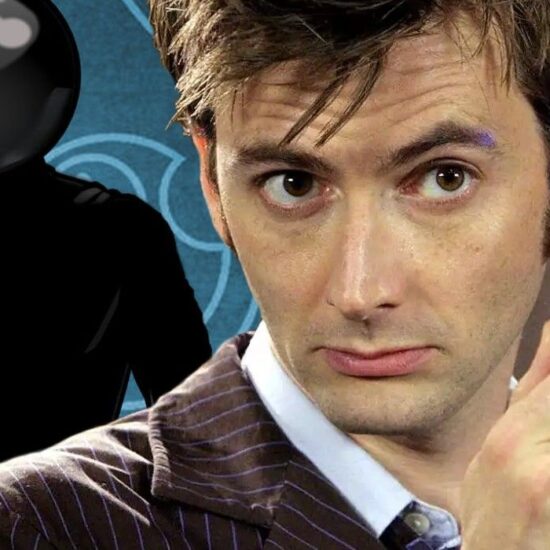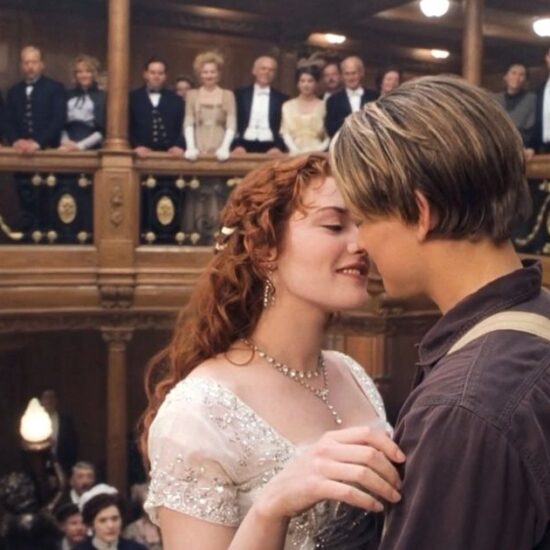
I went into my first viewing of Titanic prepared. Nearly 25 years after it walked away with 11 Oscars at the 1998 Academy Awards, the film was being re-released in IMAX 3D. Aside from the 3D part, that seemed like the ideal way to experience James Cameron’s epic romantic tragedy. I had a notebook, a pen; I was ready to be a diligent film critic, to find something profound, new, or inspiring to say about it. But that’s not exactly what happened.
Somehow, I’d never seen Titanic. I was six years old when it was released in theaters in 1997, and as an adult I never bothered to seek it out. I’m not big on romantic comedies, much less romantic tragedies, and I like my disaster movies big, dumb, and totally improbable, not horrifyingly realistic. Still, I tried to put that aside and get swept away in the romance between Rose and Jack. But, instead, as the camera flipped upside-down as the deck of the RMS Titanic finally slipped under the water, I wrote down only one note: There’s no angle from which this disaster makes sense.
You’ve got to hand it to James Cameron: the sinking of the Titanic is a perfect metaphor. The ship itself, and how it broke in half, can represent any number of things: The massive class divide between the first-class and steerage passengers. The invisible distance growing between two partners. The gap between a parent’s expectations and a child’s own desires. Titanic is not subtle in its storytelling, nor in its structure.
But does it really have to be, and should it even be, when the story is, well, Titanic? It’s all right there in the name. It’s massive—the boat, the story, the production. The problems. In the lead-up to the film’s release, the press breathlessly reported about on-set issues and Cameron’s tyrannical behavior. The film, they said, was doomed. Like the Titanic. It was going to sink at the box office. Just like the Titanic sunk to the bottom of the ocean.
Except the film didn’t sink. Just the opposite. Titanic stayed afloat through word of mouth; audiences returned again and again to see Rose and Jack’s romance unfold on the big screen. And that’s where I hit my first stumbling block.
There’s really nothing remarkable about Titanic’s love story. It’s a surface-level upstairs-downstairs romance; the characters have only as much depth as they need to make their backstories believable. And that’s fine, because even though it’s simplistic, it hits all the points of the classic three-act narrative structure. When you consider how many films fail at this very basic principle while also not purposefully subverting it, that alone is an accomplishment.
So what if the characters are sketchier than Jack’s head-scratchingly basic drawings; at least the plot beats are familiar. The romance between Rose and Jack shouldn’t have been a hard sell. And, for millions of viewers, it wasn’t. There’s a reason why the couple is frequently cited as one of the most tragic romances in film history. You don’t need a whole lot of backstory to buy into Kate Winslet and Leonardo DiCaprio’s chemistry, to believe in the wish-fulfillment fantasy of a happier life that Jack represents for Rose. But that’s the thing I kept returning to: was Rose really in love with Jack, or was she just in love with what he represented?
Stick with me here: Rose’s motivations aren’t inherently romantic. She doesn’t want to marry Cal because he’s a transparently, cartoonishly bad person. He talks down to her, openly expresses his distaste for the art she likes, and seems less interested in her as a person than as a vacant shell of a beautiful wife he needs to be a proper high society gentleman. And Rose’s arguments with her mother all focus on how she doesn’t want this; not just the relationship, but the whole thing. The high-class life, being a doting wife, suppressing her opinions, obeying her husband.
She wants to be her own person, and the best thing Jack does in the entire film is show her that it’s possible to just leave everything behind and start over. And yeah, sure, she clearly sees herself doing that with Jack. He’s the one who first gave her permission to be her own person, and that’s important. It’s really, really important. But it’s also important that, after Jack’s death, Rose does those things. She fakes her own death to get away from Cal. She chases her dreams. She moves on from the tragedy she endured. And that last part is really a superhuman feat because, holy shit, Titanic does not hold back when it turns into a full-scale disaster movie.
James Cameron likes to position himself as a visionary filmmaker. He’ll tell you all day long about how Avatar: The Way Of Water was released 13 years after the original because he spent most of that time developing new underwater cameras and filming techniques because the technology he needed didn’t exist at the time. He’s a maverick, a disruptor.
Someone who’s unafraid to show more than one dead child floating in the icy waters of the Atlantic.
That’s not an exaggeration; there is, by most film standards, a staggering amount of dead children in Titanic. It doesn’t quite top Star Wars: Revenge Of The Sith in numbers, but in gruesomeness, Titanic easily takes that dubious crown. And, somehow, you’ve really got to give it up for Cameron again: that he managed to frame the public narrative of Titanic, and direct the cultural discourse, around the romantic aspect of the film, instead of the actual real-life tragedy, is one of cinema’s greatest tricks.
The scope of the disaster that was the sinking of the RMS Titanic is something Cameron knew he had to reckon with going in: the whole film is structured around the romance because audiences needed an easy entry point to help them put a tragedy of that magnitude in context. It is, as Cameron pitched it, “Romeo And Juliet on a boat.” Except the boat is sinking, and over 1,500 other people die, too.
So what is there to say about Titanic at 25? It’s still a remarkably competent film; the setups all have payoffs and the structure is rock-solid. But there’s almost an innocence to it, to the idea that the tragedy of the Titanic disaster was so unfathomable that we’d need a love story to help us understand it. I can’t fault the film for that. I can’t fault anyone who loves the movie for that. And I really wish I could be uncynical enough to be able to be swept up in the narrative the film is trying to feed me instead of being preoccupied with the mass casualty event it’s trying its best not to dwell on.
You can tell that Titanic doesn’t want to get too bogged down in the consequences of the ship sinking in the way that, unlike many other films about true events, it doesn’t have any end cards with text laying out statistics about the survivors, the deaths, or anything else. It’s a romance, through and through. But, for me, trying to understand why the schlocky upstairs-downstairs romance is the thing people remember most about this movie, rather than the totality of the bad decisions that caused the ship to sink and caused so many people to die—well, I might as well be rearranging deck chairs on the Titanic.














